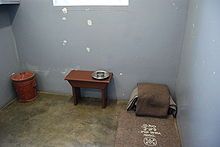Today we get the news that Jon will be leaving The Daily Show at the end of the year. His contract is up which is why the speculation about his taking over Meet the Press had a certain amount of reasonance.
What will he do? It won’t be The Daily Show.
Will The Daily Show continue? There are some indicators that it will, they’ve changed hosts before, in the beginning as often as they changed socks; but it might be replaced by something else.
What would that be? Some people think that Larry Wilmore deserves an hour which his format probably needs though I think it’s just too soon to tell after 3 weeks. I also hear that it strikes some people as Meet the Press with more minorities which is also true and what troubles me most. If he’s just going to be peddling the same Beltway BS instead of Keeping it 100 (which he already shows unfortunate signs of) I might as well be watching Hayes or Maddow (which I don’t, they’re better than most but not that good in the bigger picture because they’re too tied to the Institutional Democratic Party).
What I can tell you is that it’s not funny. So far. Larry is way too earnest.
Now I think the topics are interesting (some people disagree) but I don’t exactly see the value of other’s opinions of them (unless of course they agree with mine) and short of throwing a brick at my TV (which is much less satisfying without that big CRT implosion) I can’t get them to shut up and listen to ME!
I won’t try to encapsulate tonight the importance of “fake” news in the current culture where everything is a blatant lie relying on you ignorance and faulty short term memory to skate by. In this environment Jon Stewart is Walter Cronkite.
Tangentially, Brian Williams is done. Suspended for 6 months without pay which will cost him $5 Million but don’t delude yourself, he will never anchor again. Instead the job is Lester Holt’s to lose.
Sigh. Culture is important. Our perceptions of what is news and what is propaganda are important. That’s what made The Daily Show and The Colbert Report pivotal touchstones of reality during a time when objective or even subjective truth is under constant assault.
I may be pleasantly surprised by change, but I rarely am.
You, dear readers, may rest assured that I will keep doing what I do (what is that exactly anyway?) until I can’t do it any more. Quality is a crapshoot and a bonus when it happens, the threshold of dignity is slightly better than absolutely horrible.
The U.S. Relationship with War
Men, all this stuff you’ve heard about America not wanting to fight, wanting to stay out of the war, is a lot of horse dung. Americans traditionally love to fight. All real Americans love the sting of battle. When you were kids, you all admired the champion marble shooter, the fastest runner, big league ball players, the toughest boxers. Americans love a winner and will not tolerate a loser. Americans play to win all the time. I wouldn’t give a hoot in hell for a man who lost and laughed. That’s why Americans have never lost, and will never lose a war… because the very thought of losing is hateful to Americans.
Tonight’s topic? You’ve got me. The site is all focused on Wednesday’s Ask Me Anything.
Continuity
Maybe this guy is available.
This week’s guests-
The Daily Show
Ok, everything about David Axelrod is evil. He’s a soulless ghoul feasting on the decaying flesh of the Democratic Party. He’s whoring his book Believer: My Forty Years in Politics. Make no mistake, David Axelrod doesn’t believe in anything except winning (oh, and cushy jobs for David Axelrod).
We don’t want to go back to the same policies and the same practices that drove our economy into a ditch, that punished the middle class, and that led us to this catastrophe. We have to keep moving forward.
How’s that working out for you?
The real news below.


 On this day in 1990,
On this day in 1990,  Mandela was imprisoned on
Mandela was imprisoned on
Recent Comments